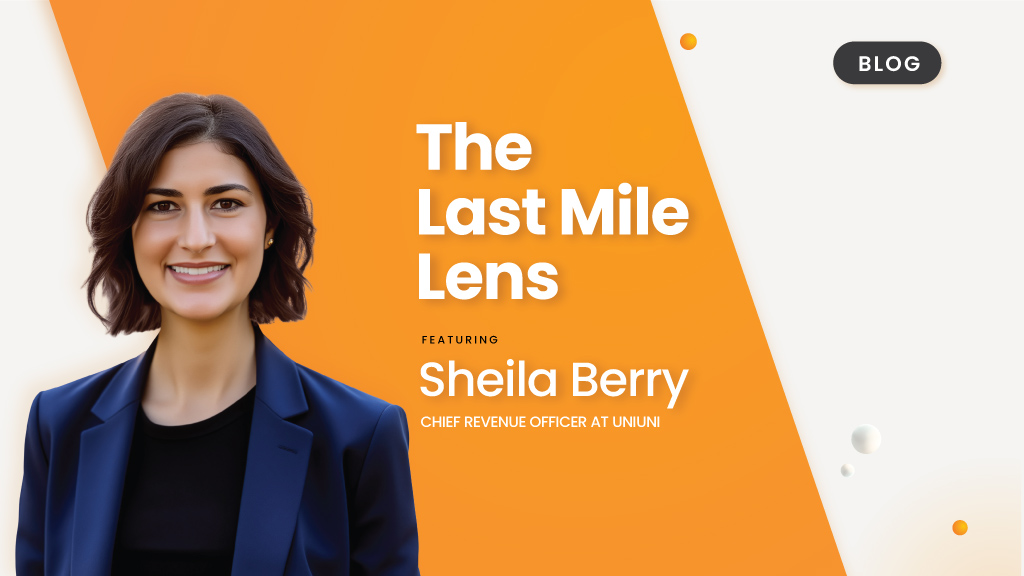The Last Mile Lens with Sheila Berry, Chief Revenue Officer at UniUni

Delivering on What Matters: A Conversation on Last-Mile Delivery Speed, Reliability, and Cost
The last-mile isn’t simply the final step of an order – it’s a brand-defining experience.
Consumers expect fast, affordable, and reliable shipping, and when something goes wrong, they’re not just blaming the carrier. They’re also blaming the brand, creating a heightened level of accountability for e-commerce companies when selecting last-mile delivery partners.
We caught up with Sheila Berry, Chief Revenue Officer at UniUni, to unpack what matters in the last-mile and how brands can build partnerships that deliver on today’s consumer expectations.
Let’s get right to it! What should logistics leaders focus on when evaluating or selecting a last-mile delivery partner?
The most important criteria include: coverage, speed, reliability, quality, cost, and the ability to flex up or down based on demand. Since every brand’s customers will have different needs, the priority of any given factor will vary in that brand’s carrier selection.
How have customer expectations reshaped what brands need from last-mile partners?
The best and most innovative carriers meet the customer according to her preferences, whether that’s a delivery to a home address, secure lockers in apartment buildings, or pickup at a nearby grocery store at convenient hours.
These options have become the standard. At UniUni, we’re testing PUDO (pick-up/drop-off) points across Toronto to give customers even more flexibility and convenience. If a brand wants to stay competitive, they need delivery partners who can enable this kind of optionality.
What should brands look for in a partner that can effectively balance cost and reliability?
Honestly, if you don’t have good reliability, you’re dead in the water. While affordability remains a major shipping consideration, it shouldn’t come at the expense of brands meeting delivery promises. Consumers understand the tradeoffs between cost and speed, but they dislike unpredictability. Let’s say a customer selects a four-day service but their order arrives in two days when they aren’t home. That’s not necessarily a win. Consumers want an order to arrive when promised.
If someone is rethinking their delivery partners, what advice would you give to help them choose the right provider for effective and sustainable growth?
Consider the up-and-coming carriers with non-traditional models. A lot of legacy carriers trade on their name recognition, but they aren’t the right fit because they weren’t built to fulfill the needs of fast-moving e-commerce brands. That’s where upstarts like UniUni have an edge. UniUni was purpose built for DTC e-commerce. We live and breathe it.
How can brands evaluate whether a last-mile partner’s technology will integrate smoothly and add value without disrupting existing logistics systems?
It’s essential that a carrier can integrate with the tools a brand is already using. Whether it’s an ERP system for invoicing or a platform like Shopify for order management or the warehouse management system for a brand’s preferred third party fulfillment partner, ideally the carrier can just plug and play.
How has the decision-making process around last-mile delivery providers evolved within e-commerce companies?
Logistics choices were once strictly the domain of logistics and operations executives. With last-mile performance directly impacting customer experience, brand perception, and repeat purchasing, these decisions are now happening cross-functionally at the highest levels. For brands, it’s not just a cost optimization decision anymore, it’s a strategic one.
Look out for more conversations with the leaders shaping the future e-commerce, technology, logistics, and supply chain. As always, reach out to learn more about our last-mile delivery offerings to hello@uniuni.com.